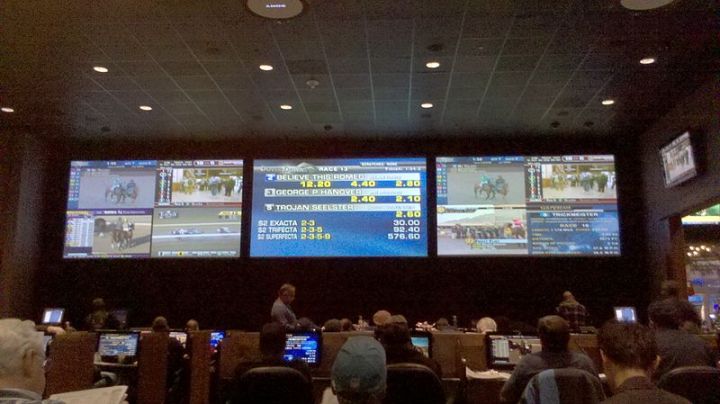
Researcher Lisandro Kaunitz of the University of Tokyo and a few of his friends from around the world devised a mathematical system that let them consistently make money betting on soccer games online. The MIT Technology Review has all the details on the system they used, but to understand it, you have to know how sports betting actually works.
When bookmakers set the odds on a particular match, they use historical data and sophisticated analysis to predict the most likely outcome, and then set the odds of a win, loss, or draw accordingly. Certain teams are more popular than others, of course, and tend to draw more betting action, especially on big events like the Super Bowl. As a result, the oddsmakers may adjust the betting line by a few points one way or the other to compensate for this bias.
Kaunitz and colleagues devised a system that consistently identified betting opportunities that favored them rather than the house. They tracked odds offered by online betting companies on soccer matches and calculated the average odds to discover any outliers. Then they analyzed whether a bet on the outlier matches would favor them or not.
To test their system, they analyzed the results of 479,440 soccer games played between 2005 and 2015. This simulation delivered a return of 3.5 percent. “For an imaginary stake of $50 per bet, this corresponds to an equivalent profit of $98,865 across 56,435 bets,” they said. A random simulation yielded a return of negative 3.2 percent, or a loss of $93,000.
“At this point we decided to place bets with real money,” Kaunitz said. Over a five-month period, their 256 different $50 bets paid off 47.2 percent of the time, and they made a profit of $957.50, an impressive return of 8.5 percent.
But then down came the banhammer.
The online casinos would no longer accept their wagers, or would limit them to amounts as small as $1.25. “The sports betting industry has the freedom to publicize and offer odds to their clients, but those clients are expected to lose,” Kaunitz said. “If they are successful, they can be restricted from betting.”
One of the bookmakers used by the team told the New Scientist it’s the casino’s prerogative to restrict certain bets. “This can be for a number of reasons, including bonus abuse and taking proportionately more than their fair share of special offers and enhanced prices, which are designed for the many rather than a few,” said the spokesman.
What did they do with their winnings? Kaunitz and his wife splurged on a nice dinner in Tokyo. “We were excited, but it’s worth mentioning – you need to spend a lot of time to do it,” he said.


